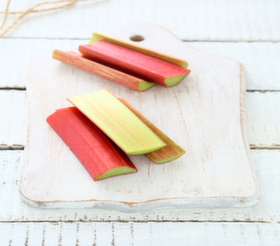
Rhubarb (Cooked with added sugar)
Rhubarb has been used for medicinal purposes in China since 2700 B.C. It has reddish-purple, edible, leafy stalks. Rhubarb helps boost the immune system, promote healthy skin and vision and prevent cancer. Most sources refer to Rhubarb as a fruit.